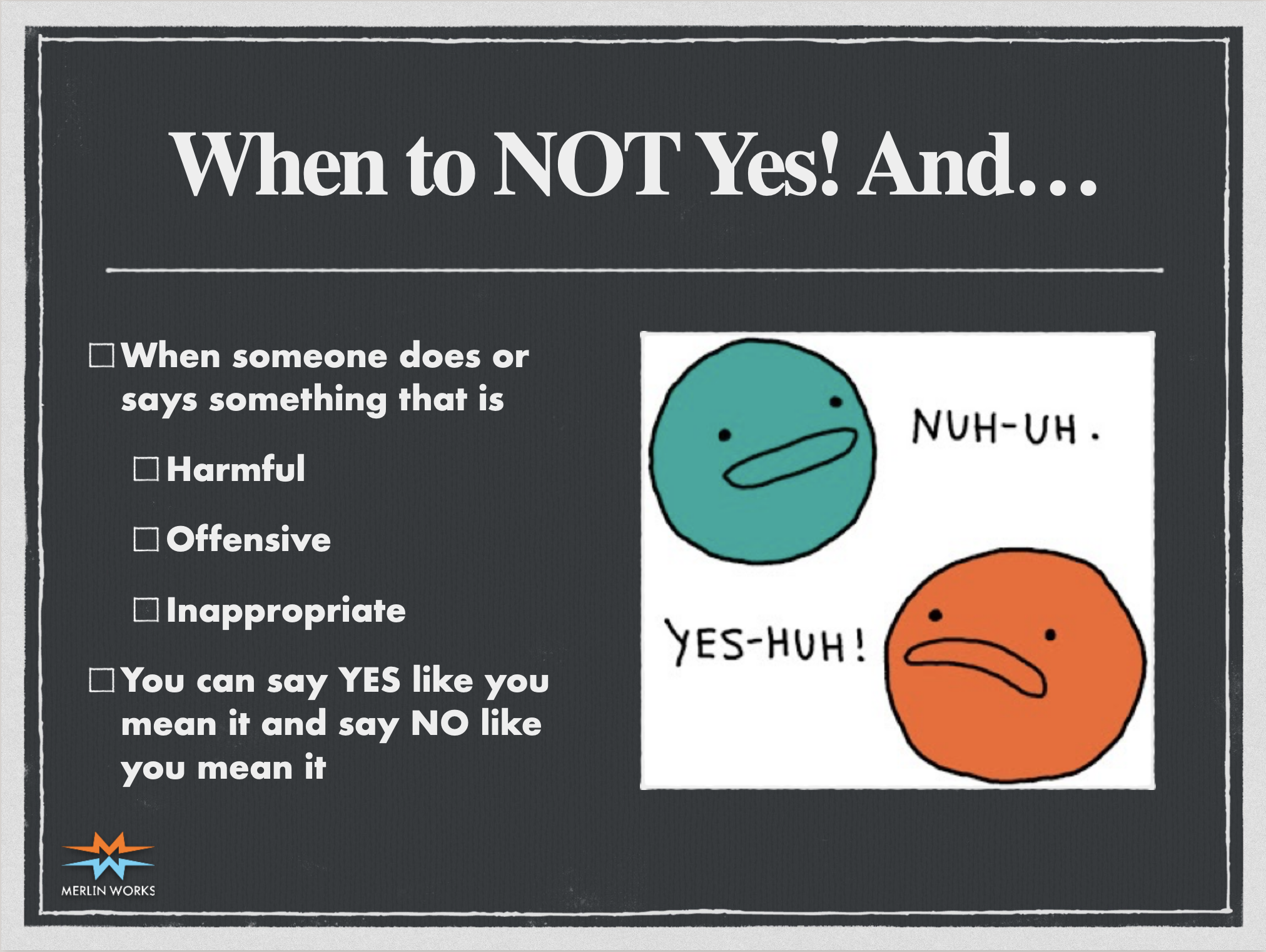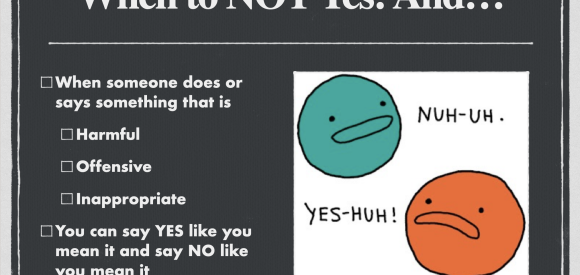I was slowly getting more and more creeped out as I sat through the presentation. I had just delivered a tight 60 minutes on Improv Skills for Work and Life for 600 people who worked for Oklahoma WIC and Department of Human Services and had four hours until my breakout session on DEI: Intent vs Impact, so I figured I’d take the opportunity to experience the other speakers. The first one was “Personal Accountability & the QBQ.” That sounded interesting. What was the QBQ? I was intrigued.
The speaker started strong, connecting with the crowd and sharing some personal stories. They also had a fun handout where I could fill in the blanks as I listened to the session. My inner nerd loves feeling like a straight A student again. I heard what the QBQ is and filled in the blanks: QBQ = The Question Behind the Question. But what was the question? And what was the question behind that? The speaker played a video of her father telling a story illustrating the power of the QBQ.
The story takes place on an overbooked and delayed flight during the holiday season full of grumpy passengers. Once they are in the air, Bonita, a flight attendant, decides to put on a Santa hat and pass out free headsets to cheer people up. The man in the video is impressed and delighted. He points out that she is happy and successful because she asked herself The Question Behind the Question: What can I do to improve the situation? Even though she didn’t cause the overbooking or delays, she was asking what is in her locus of control to make things better.
I like this story. And I see the power behind focusing on what is in your sphere of influence to effect positive change instead of just complaining and throwing up your hands. But there was something I didn’t like about the way this story was presented. Something that really started to creep me out. It was that the speaker listed out all the questions Bonita didn’t (and shouldn’t) ask. The speaker was pointing out that she didn’t ask “Why did they overbook the plane?” or “Who dropped the ball?” or “Why am I not paid more for this?” This is what started feeling ominous.
It might be my Jewish upbringing or my anti-establishment nature, but alarms start ringing in my head when people tell me not to ask questions. I mean, I get that some questions are more useful than others at different moments. But I think it’s dangerous and potentially evil to encourage front line employees to not ask questions about the systems in place, the people in charge and how they are treated. Then the speaker got into a story about a low point in her life when her husband was out of work and taking care of the kids while she was on the road working. And she was so unhappy and angry with him, asking questions like, why can’t he get the kids on a schedule? Why is the house a mess? When is he going to find a job? And then she realized the error of her ways. She was asking the wrong questions that were making her unhappy. Instead she should practice what she preached and use the QBQ! She should focus on what she can do to solve the problem! How can she help him make a schedule, find job opportunities and help clean around the house after she gets back working on the road full time? At that point my normally cool head was on fire. She was pushing my feminism buttons, my equity buttons, my mom buttons. All the buttons were pushed. I was now totally against the QBQ.

And I started asking the questions she didn’t want me to ask: Why would an organization bring her in? Who is this message really serving? Why don’t the people in power want us to ask those questions? I will not be brainwashed!
And then I asked a question behind that question and that really scared me: Am I just like the QBQ lady when I teach Yes And to organizations? Is that why they are bringing me in? Because they want their employees to be more compliant and docile? Am I teaching them to ignore their legitimate complaints and instincts and substitute some sort of toxic positivity? I’ve experienced Yes And as a powerful mindset shift that can create collaboration and harmony. But but but… its not the right move all the time. And I realized in that moment that I needed to do more work to clarify when to use Yes And and when NOT to.

A few weeks later, I took an Improv for Inclusion class with Stephanie Rae of the Black Improv Alliance and Freestyle Love Supreme and the timing couldn’t have been better. She said it so clearly. As if it shouldn’t have to be explained but it does: when something is harmful, offensive or inappropriate you should not Yes And it. You should stop things and do something else. She explained further that Yes And means, ‘Yes I hear what just happened and I saw what happened and I get to respond in a way that feels respectful and dignified to me.” And she led us through a series of activities to practice saying yes and saying no. Speaking up and interrupting. And experiencing privilege and the lack of it. It was a great class and great to have permission from an expert on how to teach more accurately this aspect of improv.
So I added a new slide to my presentations. After my “When To Yes And” slide, I added a “When NOT to Yes And” and included the language she shared. And in my next presentation, with the Texas Department of Family Protective Services, I immediately got unsolicited positive feedback from audience members on the new slide. And I realized how important it was. These are people that have to say no in their work. They see some dark things and need to stop them. But they need to switch gears when they are in collaboration, creativity and innovation mode. And I feel like I did a better job at giving them these tools with this new slide in place.

It’s our 20th year of Merlin Works and I’m still improving (and still improv-ing!) and I’m still learning. Knowing better and doing better. I love being a teacher and I love being a student and they both feed each other. I used to say it as an aside, but now I declare it in my workshops: Say Yes like you mean it and say No like you mean it!

